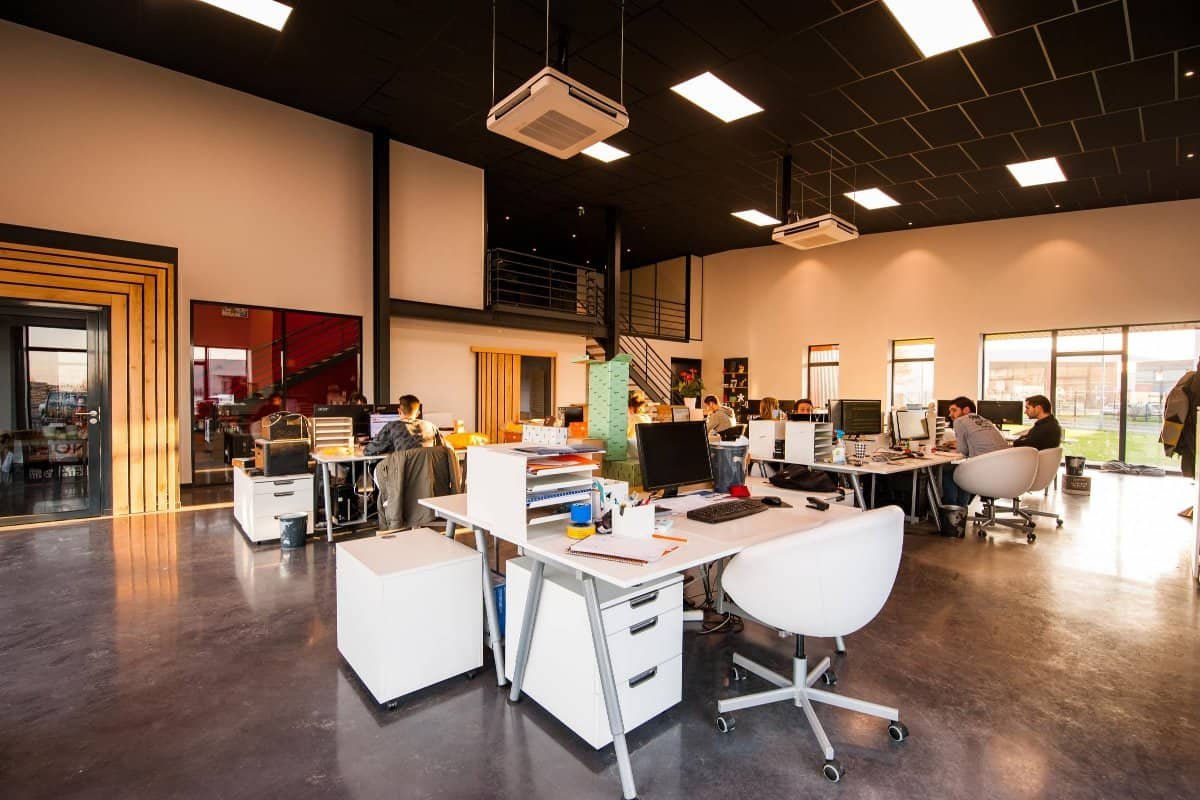Soft Skills for the Workplace
Developing & Improving Soft skills in the workplace
In today’s competitive job market, it can be difficult to stand out from the crowd. With so many qualified candidates vying for a limited number of jobs, it is more important than ever to have strong soft skills. Soft skills are personal qualities that enable you to interact effectively with other people. They are essential for success in any field, and they are particularly important in the workplace. In this article, we will discuss what soft skills are and why they are so important in the workplace. We will also look at some common soft skills and how you can develop them.
What are soft skills?
Soft skills are personal qualities that enable you to interact effectively with other people. They include things like communication, problem solving, and teamwork. Soft skills are essential for success in any field, and they are particularly important in the workplace.
Soft skills are transferable skills. This means that they can be used in any field or industry. They are not specific to a certain job or profession, and they can be applied in a variety of different settings.
Soft Skills are different from Technical Skills (aka Hard Skills):
Technical skills are specific skills that enable you to do a particular job. They include things like computer programming, welding, and accounting. Technical skills are essential for success in any field, and they are particularly important in the workplace. In this article, we will discuss what technical skills are and why they are so important in the workplace. We will also look at some common technical skills and how you can develop them.
Why are soft skills important in the workplace?
There are several reasons why soft skills are so important in the workplace. First of all, they help you to communicate effectively with your colleagues. Good communication is essential for teamwork and collaboration. Soft skills also help you to solve problems and resolve conflicts.
In addition, they help you to build relationships with your clients and customers. Strong relationships are key to successful business relationships. Finally, soft skills can help you to manage your own emotions and stay calm under pressure.
Common soft skills in the workplace
There are many different soft skills that are important in the workplace. Some of the most common ones include:
– Communication: Good communication skills are essential for working effectively with others.
– Problem solving: Problem solving skills allow you to identify and solve problems quickly and efficiently.
– Critical thinking: Critical thinking skills allow you to analyse information and make sound decisions.
– Creativity: Creativity allows you to come up with new ideas and solutions.
– Teamwork: Teamwork skills allow you to work effectively with others in a team environment.
– Time management: Time management skills allow you to manage your time effectively and meet deadlines.
– Leadership: Leadership skills allow you to lead and motivate others.
– Conflict resolution: Conflict resolution skills allow you to resolve conflicts peacefully and effectively.
– Persistence: Persistence allows you to keep going even when things get tough.
– Organisational skills: Organisational skills allow you to effectively manage your time and resources.
– Stress management: Stress management skills allow you to stay calm and focused under pressure.
– Flexibility: Flexibility allows you to adapt to changing circumstances and requirements.
– Positive attitude: A positive attitude helps you to maintain a positive outlook in difficult situations.
– Integrity: Integrity allows you to maintain high standards of behaviour and work ethics.
– Dependability: Dependability allows you to be reliable and trustworthy.
– Enthusiasm: Enthusiasm allows you to be motivated and excited about your work.
Interpersonal Skills:
Interpersonal skills is a category within soft skills. They are the skills you use to interact with other people. They include communication, problem solving, and teamwork skills.
Interpersonal skills are essential for success in any field, and they are particularly important in the workplace. In this article, we will discuss what interpersonal skills are and why they are so important in the workplace. We will also look at some common interpersonal skills and how you can develop them.
There are several reasons why interpersonal skills are so important in the workplace. First of all, they help you to communicate effectively with your colleagues. Good communication is essential for teamwork and collaboration. Interpersonal skills also help you to solve problems and resolve conflicts.

How to develop your soft skills
There are several things you can do to develop your soft skills. The most important thing is to practise them as often as possible. Here are a few tips:
– Communication: practise speaking in public, join a Toastmasters club, or take a communication class.
– Problem solving: practise problem solving skills by solving puzzles or brain teasers, attend problem solving workshops, or read books on problem solving.
– Critical thinking: practise critical thinking skills by analysing information and making decisions, attend critical thinking workshops, or read books on critical thinking.
– Creativity: practise creative thinking by brainstorming ideas, taking classes in creative writing or art, or reading books on creativity.
– Teamwork: practise teamwork skills by working on team projects, attending team-building workshops, or participating in group activities.
– Time management: practise time management skills by setting deadlines and sticking to them, planning your day ahead of time, and breaking down tasks into smaller steps.
– Leadership: practise leadership skills by leading and motivating others, attending leadership workshops or courses, or reading books on leadership.
– Conflict resolution: practise conflict resolution skills by resolving conflicts with family members and friends, attending conflict resolution workshops, or reading books on conflict resolution.
– Persistence: practise persistence by continuing to work on challenging tasks, setting goals and working towards them, and refusing to give up.
– Organisational skills: practise organisational skills by creating a filing system, writing down tasks and priorities, and using a time management system.
– Stress management: practise stress management skills by deep breathing exercises, meditation, or yoga.
– Flexibility: practise flexibility by trying new things, accepting change, and being open to new ideas.
– Positive attitude: practise positive thinking by looking on the bright side of situations, maintaining a positive outlook in difficult times, and celebrating your successes.
– Integrity: practise integrity by being honest and truthful in all your dealings, keeping your promises, and being fair and just in your decisions.
– Dependability: practise dependability by being reliable and trustworthy, arriving on time, and completing tasks on schedule.
– Enthusiasm: practise enthusiasm by being excited about your work, setting goals, and working towards them.

Soft Skills for Managers:
The soft skills for managers are communication, problem solving, critical thinking, creativity, teamwork, time management, leadership, conflict resolution, and persistence. These skills allow managers to effectively manage their teams and resources. They also help managers to stay calm and focused under pressure.
Managers need to be able to communicate effectively with their teams, solve problems efficiently, think critically, be creative in their approach to work, work well in a team environment, manage their time effectively, lead and motivate their team members, resolve conflicts peacefully, and persevere through difficult challenges. These skills are essential for success in any managerial role.
Soft Skills and Leadership:
The soft skills and leadership go hand in hand. Leaders need to be able to communicate effectively, problem solve efficiently, think critically, be creative in their approach to work, work well in a team environment, manage their time effectively, lead and motivate their team members, and resolve conflicts peacefully. In order to develop these skills, leaders need to practise them regularly.
Developing strong soft skills and abilities can help leaders achieve their personal and professional goals. By improving their communication, problem, critical thinking, teamworking, time management, motivation, and conflict resolution skills, can become more effective at their jobs, achieve greater success in their careers, and inspire others to reach their potential.
Soft Skills for Students:
The soft skills for students are communication, problem solving, critical thinking, creativity, teamwork, time management, leadership, and persistence. These skills allow students to effectively communicate with their teachers and classmates, solve problems efficiently, think critically, be creative in their approach to assignments, work well in a team environment, manage their time effectively, lead and motivate their classmates, and persevere through difficult challenges.
Students need to be able to communicate effectively with their teachers and classmates, solve problems efficiently, think critically, be creative in their approach to assignments, work well in a team environment, manage their time effectively, lead and motivate their classmates, and persevere through difficult challenges. These skills are essential for success in any academic setting.
Developing strong soft skills and abilities can help students achieve their personal and professional goals. By improving their communication, problem, critical thinking, team work, time management, motivation, and conflict resolution skills, can become more effective at their studies, achieve greater success in their academic career, and inspire others to reach their potential.
Soft Skills in Customer Services:
The soft skills in customer services are communication, problem solving, critical thinking, creativity, teamwork, time management, leadership, and persistence. These skills allow customer service representatives to effectively communicate with customers, solve problems efficiently, think critically, be creative in their approach to work, work well in a team environment, manage their time effectively, lead and motivate their team members, and persevere through difficult challenges.
Customer service representatives need to be able to communicate effectively with customers, solve problems efficiently, think critically, be creative in their approach to work, work well in a team environment, manage their time effectively, lead and motivate their team members, and persevere through difficult challenges. These skills are essential for success in any customer service role.
Developing strong soft skills and abilities can help customer service representatives achieve their personal and professional goals. By improving their communication, problem, critical thinking, team work, time management, motivation, and conflict resolution skills, can become more effective at their job, achieve greater success in their career, and inspire others to reach their potential.
Soft Skills in the Workplace for Engineers:
The soft skills for engineers are communication, problem solving, critical thinking, creativity, teamwork, time management, leadership, and persistence. These skills allow engineers to effectively communicate with their team members and clients, solve problems efficiently, think critically, be creative in their approach to work, work well in a team environment, manage their time effectively, lead and motivate their team members, and persevere through difficult challenges.
Engineers need to be able to communicate effectively with their team members and clients, solve problems efficiently, think critically, be creative in their approach to work, work well in a team environment, manage their time effectively, lead and motivate their team members, and persevere through difficult challenges. These skills are essential for success in any engineering role.
Developing strong soft skills and abilities can help engineers achieve their personal and professional goals. By improving their communication, problem, critical thinking, team work, time management, motivation, and conflict resolution skills, can become more effective at their job, achieve greater success in their career, and inspire others to reach their potential.
Soft Skills in the Workplace for Nurses:
The soft skills for nurses are communication, problem solving, critical thinking, creativity, teamwork, time management, leadership, and persistence. These skills allow nurses to effectively communicate with patients and team members, solve problems efficiently, think critically, be creative in their approach to work, work well in a team environment, manage their time effectively, lead and motivate their team members, and persevere through difficult challenges.
Nurses need to be able to communicate effectively with patients and team members, solve problems efficiently, think critically, be creative in their approach to work, work well in a team environment, manage their time effectively, lead and motivate their team members, and persevere through difficult challenges. These skills are essential for success in any nursing role.
Soft Skills in the Workplace for Teachers:
The soft skills for teachers are communication, problem solving, critical thinking, creativity, teamwork, time management, leadership, and persistence. These skills allow teachers to effectively communicate with parents and team members, solve problems efficiently, think critically, be creative in their approach to work, work well in a team environment, manage their time effectively, lead and motivate their team members, and persevere through difficult challenges.
Teachers need to be able to communicate effectively with parents and team members, solve problems efficiently, think critically, be creative in their approach to work, work well in a team environment, manage their time effectively, lead and motivate their team members, and persevere through difficult challenges. These skills are essential for success in any teaching role.
Developing strong soft skills and abilities can help teachers achieve their personal and professional goals. By improving their communication, problem, critical thinking, team work, time management, motivation, and conflict resolution skills, can become more effective at their job, achieve greater success in their career, and inspire others to reach their potential.
Soft Skills in the Workplace for Business Professionals:
The soft skills for business professionals are communication, problem solving, critical thinking, creativity, teamwork, time management, leadership, and persistence. These skills allow business professionals to effectively communicate with their team members and clients, solve problems efficiently, think critically, be creative in their approach to work, work well in a team environment, manage their time effectively, lead and motivate their team members, and persevere through difficult challenges.
Business professionals need to be able to communicate effectively with their team members and clients, solve problems efficiently, think critically, be creative in their approach to work, work well in a team environment, manage their time effectively, lead and motivate their team members, and persevere through difficult challenges. These skills are essential for success in any business role.
Developing strong soft skills and abilities can help business professionals achieve their personal and professional goals. By improving their communication, problem, critical thinking, team work, time management, motivation, and conflict resolution skills, can become more effective at their job, achieve greater success in their career, and inspire others to reach their potential.
Conclusions:
The soft skills for managers, students, and leaders are communication, problem solving, critical thinking, creativity, teamwork, time management, leadership, conflict resolution, and persistence. These skills allow individuals to be more effective at their jobs or studies, achieve greater success in their careers or academic lives, and inspire others to reach their potential. By improving these skills, individuals can become more successful in their personal and professional lives.
By practising your soft skills regularly, you will be able to improve your communication, problem solving, and teamwork skills. This will help you to be a more effective employee and contribute more to your team. In addition, these skills will also help you to build better relationships with clients and customers, which is essential for successful business relationships.
It is likely that soft skills will become even more important in the workplace. As jobs continue to change and evolve, employers will increasingly require employees with strong soft skills. Soft skills are also essential for entrepreneurs, as they are necessary for starting and running a business.
So don’t wait any longer – start practising your soft skills today!





